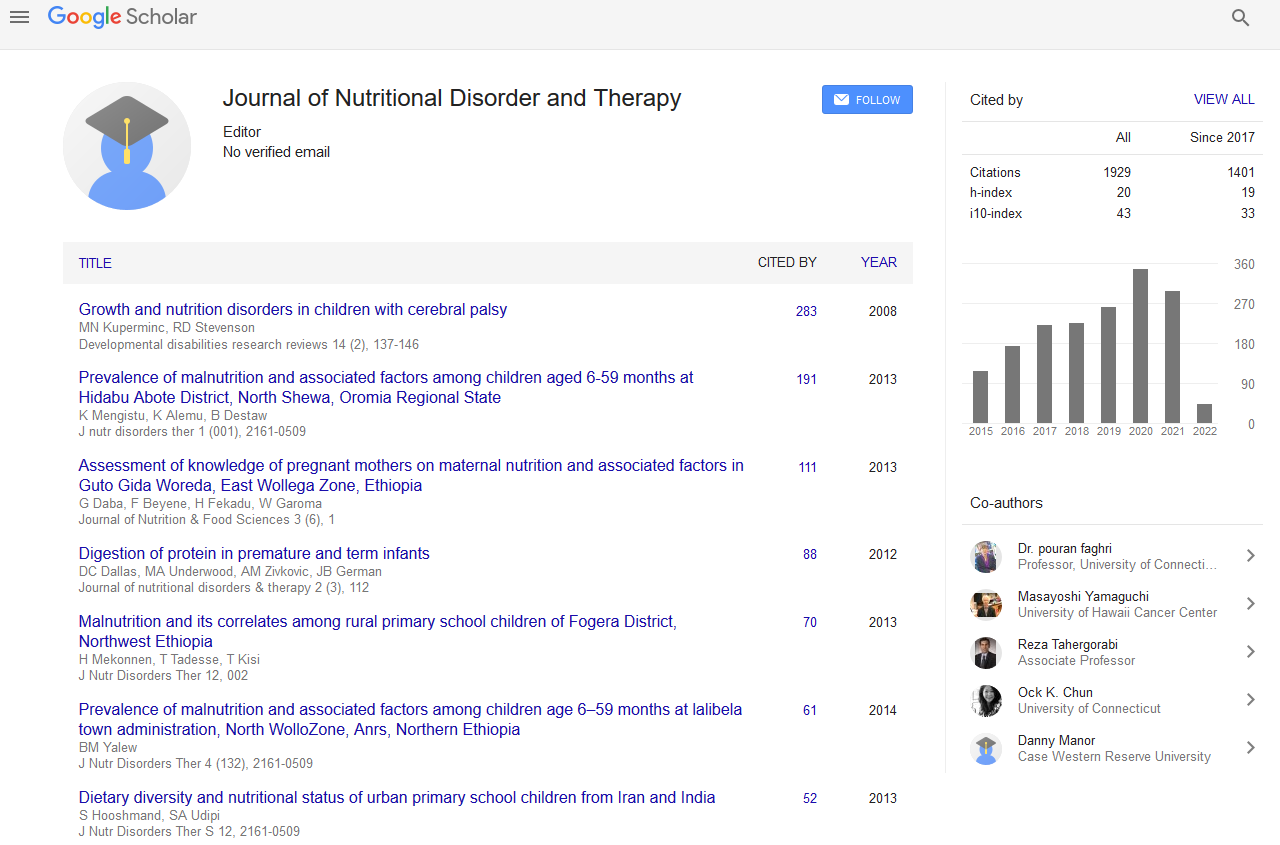Indexed In
- Open J Gate
- Genamics JournalSeek
- Academic Keys
- JournalTOCs
- Ulrich's Periodicals Directory
- RefSeek
- Hamdard University
- EBSCO A-Z
- OCLC- WorldCat
- Publons
- Geneva Foundation for Medical Education and Research
- Euro Pub
Useful Links
Share This Page
Journal Flyer

Open Access Journals
- Agri and Aquaculture
- Biochemistry
- Bioinformatics & Systems Biology
- Business & Management
- Chemistry
- Clinical Sciences
- Engineering
- Food & Nutrition
- General Science
- Genetics & Molecular Biology
- Immunology & Microbiology
- Medical Sciences
- Neuroscience & Psychology
- Nursing & Health Care
- Pharmaceutical Sciences
Spirulina maxima extract protects against TMT-induced neuronal damage in HT-22 and SH-SY5Y cells
JOINT EVENT: 13th International Congress on Advances in Natural Medicines Nutraceuticals & Neurocognition & 14th International Conference on Clinical Nutrition
July 27-29, 2017 Rome, Italy
Boo-Yong Lee, Eun-Jeong Koh and Young-Jin Seo
CHA University, South Korea
Posters & Accepted Abstracts: J Nutr Disorders Ther
Abstract:
Progressive neurodegeneration causes cognitive disease such as Alzheimer�??s disease (AD) due to neuronal death and dysfunction of neuronal system network. Spirulina maxima is a microalga and contains protein, flavonoids, polyphenols and other essential nutrients. Recently, many studies have been demonstrated that Spirulina maxima has anti-diabetes, anticancer and anti-inflammatory effects. However, the effects of Spirulina maxima extract on cognitive disorders are not studied in detail. And so we investigate whether Spirulina maxima extract has neuroprotective effect in TMT-induced neuronal damage in neuronal cells. Trimethyltin (TMT) is a neurotoxic compound which causes neuronal cell death and is used as model of cognitive disorders. Our results showed that Spirulina maxima extract increases cell viability with TMT treatment by measuring MTT assay in HT-22 and SH-SY5Y cells. Spirulina maxima extract reduced the cleavage of poly-ADP ribose polymerase (PARP). ROS production was repressed by down regulating nuclear factor erythroid 2-related factor 2 (Nrf2), and heme oxygenase 1 (HO-1) which is related with the oxidative stress. Recently, other publications also have been showed that Nrf2/HO-1 signaling pathways is associated with TMT-induced neuronal disorders. Furthermore, Spirulina maxima extract accelerated the neuroprotective related proteins such as brain-derived neuro-trophic factor (BDNF), and cyclic AMP responsive element binding protein (CREB) in HT-22 and SH-SY5Y cells. Conclusively in our study Spirulina maxima extract has neuroprotective effects against TMT-induced cognitive disorders in HT-22 and SH-SY5Y cells.
Biography :
Boo-Yong Lee has his expertise in research and passion in improving the health and wellbeing. His open and contextual evaluation model based on responsive constructivists creates new pathways for development of functional foods and nutrigenomics. He has built this model after years of experience in Research, Evaluation, Teaching and Administration in education institutions.


